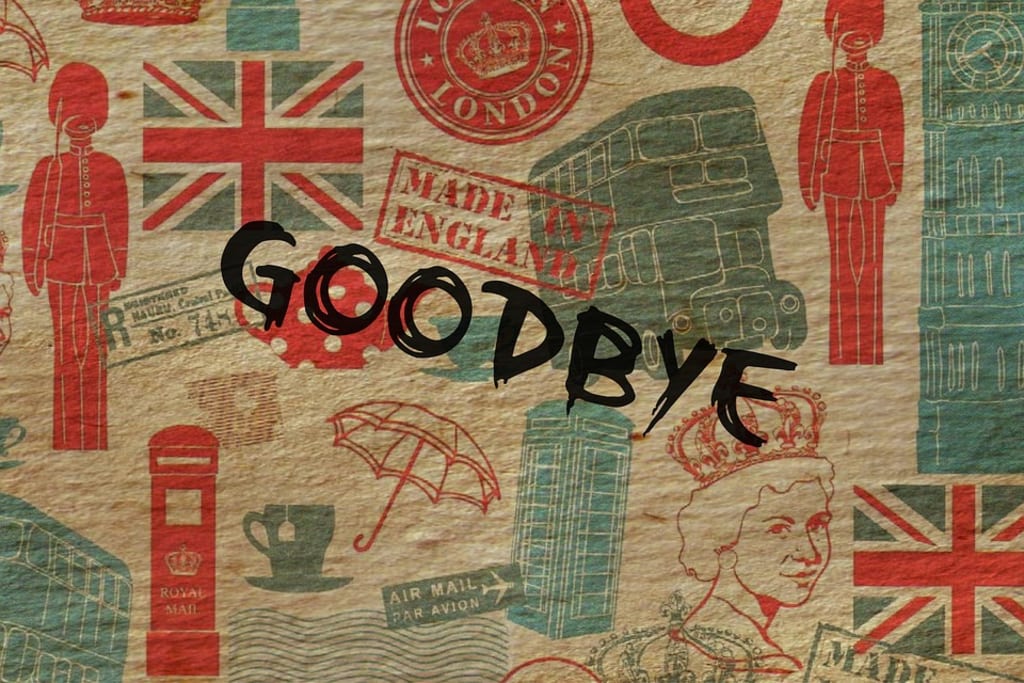Brexit — It Looks Like It's Happening
There could be a good reason behind our decision to leave the EU — but you won’t like it.

Both of the main political parties in the UK are committed to Brexit – well, sort of. The Tories more so, and I’m a little bit impressed that their pro-Remain MPs have been kept in line. Labour’s a bit more ambiguous, not because Jeremy Corbyn’s voiced anti-EU sentiment in the past, but because now he’s not really saying much of any substance. Most Labour MPs and party members are pro-Remain, and in PMQs and interviews, Corbyn expresses sentiments that would fit within a Remain framework. But he can’t bring himself to actually say it explicitly.
It’s possible that once again, Corbyn is holding his hand close to his chest. He’s surprised us time and time again, bumbling along cluelessly before pulling some amazing trick and vanquishing the opposition before anyone’s even blinked. He survived two challenges to his position as party leader, trashed the clear mandate that Theresa May had hoped for in the general election, and no-one saw it coming. He was subtle, quiet, and deadly. I just hope he knows what he’s doing this time.
In a recent speech, he skirted around the issue in the old familiar way that politicians committed to one polar extreme or the other do, when they’re not sure if their side’s the right one to be on: he fudged it. He described all the things a Labour government would seek to achieve with the EU, without actually uttering the words “stay in the EU.” Every point on his checklist is something that can be achieved by leaving things exactly as they are. In some ways this is a sensible tactic – to the uninformed this looks like Labour will deliver a “better” Brexit than the Conservatives will (the Tories are looking rather piss-poor in their negotiating skills, so it’s not hard). But there may also be another reason behind it. Corbyn might well be leading us out of the EU, and it could be for reasons greater than party politics or even Britain’s self-interest.
Many Brits feel that the UK is still a big player on the world stage. That is certainly what our media and politicians tell us. But we’re not as important as we think we are. We’re experiencing the tail end of an empire’s decline, and our current way of life may not be sustainable. During the 1990s, there were half-hearted murmurings about curbing immigration, while the numbers kept stacking up. Depending on the path the UK would take, this could be a good thing. However, shortly after the turn of this century, the Conservatives came into power, and they had other ideas.
During her time as Home Secretary, Theresa May introduced policies designed to reduce and undo the immigration of the 1990s. This was done in the most mean-spirited and crass way possible. And now that she’s Prime Minister, she’s making millions of lives utterly miserable, but mainly those of immigrants. And the Brexit decision was like pouring gasoline on the garbage fire of British discontentment. Finally, a scapegoat to blame all our problems on. It didn’t matter where they came from, or whether you were rich or poor, you could still blame your own personal problems on the supposed crowds of immigrants queueing up to steal your job while also milking the benefits system (ah, Schrödinger’s immigrant).
Britain is a nation in decline, although most are too scared to admit it. Looking at the present day, public services are in disarray, poverty is out of control, and the once-bustling high street is barren. There are rough sleepers in every shop doorway, and shops are shutting down. It began a few years ago, mostly affecting smaller towns, but now even the larger chains in our cities are dying out. Woolworths, BHS, Toys ‘R’ Us, Select, New Look – who will be next? It’s rather eerie to walk through the abandoned malls – not so empty that they close down completely, but with enough empty units to make you think there’s something very wrong with the place.
The dismantling of the benefits system bears some responsibility. Traditionally the Conservative party is the friend of big business, but retail is no longer a big player in the UK market. In order for shopkeepers to make a living, people need money in their pocket to spend – and they don’t have it. It’s not even unemployment that’s the problem; it’s underemployment. More than half of those living in poverty are in work, it’s just that they don’t have enough of it. Not enough hours, not enough part-time jobs to fill the gaps, not enough compensation.
The biggest industries in the UK are banking & property development. These are businesses that don’t require an indigenous workforce, they can be managed from anywhere. And they so often are. While London is a major banking city, it is not the only one, nor is it the most important. We no longer rule the world. Money within the banking sector cycles around within itself, often finally being extracted to offshore funds or invested in large projects.
Many of those investment projects will themselves be in the property sector, and while they may reward the government and large construction firms, they do not offer anything else to the local community. Whether a tower block is constructed in Manchester, London, or Dubai or Abu Dhabi; the native population is unlikely to benefit. These are not homes for local people, they are investments for wealthy overseas businessmen. In the best case, some of the apartments may be rented out to professionals. In many cases, they will stand empty; nothing more than a vessel for accumulating wealth. And that wealth goes straight out of the UK economy and into someone else’s pocket.
Public services underwent an aggressive schedule of privatisation from the mid-1980s onwards. Not only are these services now run by private companies (which is an essay for another time), but the infrastructure was sold off too. There is very little actually under the control of central or local government – until something goes wrong, and then our taxes end up bailing these failing companies out – yet more money extracted from the UK.
The UK has been disintegrating since the mid-20th Century. We began handing back parts of the British Empire to the inhabitants of those lands, not out of the goodness of our hearts, but because we could no longer afford to maintain them. Often, we gave back these countries in a worse state than we had found them. Within 50 years, we went from a nation that ruled two-fifths of the Earth’s surface, to a tiny cluster of islands, with ever-diminishing political sway. Many British people, especially those who voted Brexit, still cling to the romanticised ideal of Britain being a great conquering nation, a superpower with influence over other nations. They are in for a shock, once we do exit the EU. Their vote has hastened our demise.
By sticking with the EU, we were able to maintain our level of influence, trade effectively, and maintain a high standard of living. But since we have announced our intention to leave, various EU agencies and private companies have relocated. The fact that this is happening before our eyes, in the run-up to Brexit, tells us that we are actually going to go through with it. Without free movement and a customs union, Britain is not worth investing in. We were a shrinking nation anyway, and now we are beginning to implode. We are at a turning point, with two routes that the UK could travel down. If we had decided to remain, we could continue to grow, and we would need an expanding population in near-full employment. The alternative is to leave the EU and wind things down – this would also align with the Conservative government’s policies to deport immigrants and to lower the birth rate through reduced child benefit payments.
We won’t be able to gain from investment from the EU central funds, and this will deter private companies from investing. We also won’t be spending any money on our share of the EU membership fees. But that also means that we have no influence over their rules, and that we will have to play by those rules in any dealings with them. The desire to leave, and the fact it was implemented so quickly, on such a tiny portion of the vote, may have come from the realisation that even if we remained in the EU, continuous growth is not sustainable – and we may be at the limit of that growth.
The wheels started falling off a couple of decades ago, with public services being sold off to overseas companies. Our energy, roads and rails are managed and maintained from afar, for a fee. Our hospitals were sold off and managed to large outsourcing companies, and healthcare itself will be next. Our schools, care homes, libraries and universities are being run like businesses, and the common good doesn’t bring in a profit – so services are of lower quality, but “profitable.” Social housing was sold off to individual buyers at first, then to construction and management firms that gentrify their estates with less social housing than they inherited. Money was trickled away from local councils into the hands of private landlords, some of them overseas. Perpetual growth is unachievable, so we sold off our assets. The problem is that we're running out of things to sell.
Traditional British companies have been bought, acquired and merged with large foreign conglomerates, giving the veneer of tradition while operating with ruthless modernity behind the scenes. And when those British firms are no longer profitable – they go bust, with debt (to us) written off and assets extracted by whoever’s left once the lights have been switched off. Our manufacturing sector has been dying since the 1960s, yet there are the odd remnants of it here and there. We’re never going to get that back, no matter how hard the Brexiteers wish for it. We will not return to a more prosperous age. Our present-day industries, of retail and services provision, will also die out. There will still be scraps of it, because there is always a need for a human interface in certain circumstances, but our high streets will look very different, even five years from now.
This trend was happening anyway. In joining the EU, we managed to delay it for perhaps twenty or thirty years. But we are unable to maintain the kind of momentum we need to ensure our current standard of living, and the levels of growth required to support it. Changes in technology mean that more and more jobs have been, and can be, automated. It’s a dream come true for a large employer, but a source of concern for the ordinary worker. Their position is precarious not only at the threat of a robot taking their job, but because the country as a whole is declining. If Britain cannot afford to support itself, how can it afford to care for its unemployed? The workings of the technology and business sectors point towards a two-tier economy emerging, with a high managerial class, and a lower working class. And many of those who rose to the middle classes during the boom of the late 1990s are going to be demoted straight back down to working class level.
And that is the problem Brexit poses for nearly all of us – we’ve sold off so much, even our labour through outsourcing and automation, that we have nothing left to draw upon. We have been selling off our assets over the course of the last 100 years, to make up for our inability to compete with emerging economies like India and China. First we returned the colonies, then we privatised utilities and infrastructure, then public services, and then we sold the very land on which we tread. Soon we won’t have anything at all – we look like a desperately poor person, selling off our possessions bit by bit, in order to pay this month’s rent. The EU protected us somewhat, but now that we can’t afford to maintain our membership, we are reducing our population and inviting investors to strip away the last remaining items.
So that could be why both major parties are heading towards Brexit. The Conservatives are completely honest about this, whereas Labour appears a little inconsistent. But I suspect that by appearing to offer an alternative, while still not completely ruling it out, they can attract voters from across the political spectrum, and have a contingency plan in place for when things go wrong. And they will go wrong, even when they’re going ‘right’. Every economic forecast shows that Brexit will harm the UK economy – but we’re doing it anyway. Things are going to get really tough, for a lot of families – including many that are comfortably well-off now.
Many of our jobs, the little luxuries and our way of life, are due to successive government prioritising growth. But if we change tactics and accept that we have overshot the optimal level of growth, we need to readjust the economy. That is going to be painful. People are going to lose many of the things they took for granted. But it may be necessary. Brexit will reset the clock, and we will return to our rightful place, further down the international pecking order than we are now. But at least we’ll have blue passports.
About the Creator
Katy Preen
Research scientist, author & artist based in Manchester, UK. Strident feminist, SJW, proudly working-class.






Comments
There are no comments for this story
Be the first to respond and start the conversation.